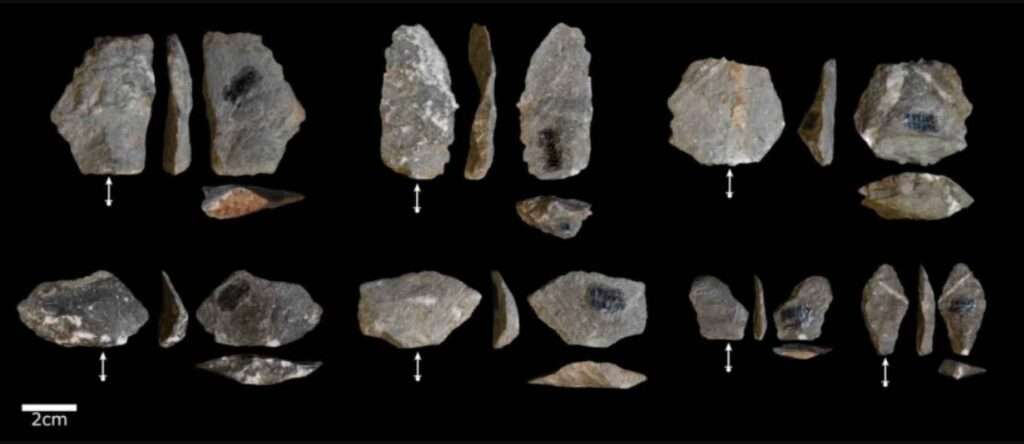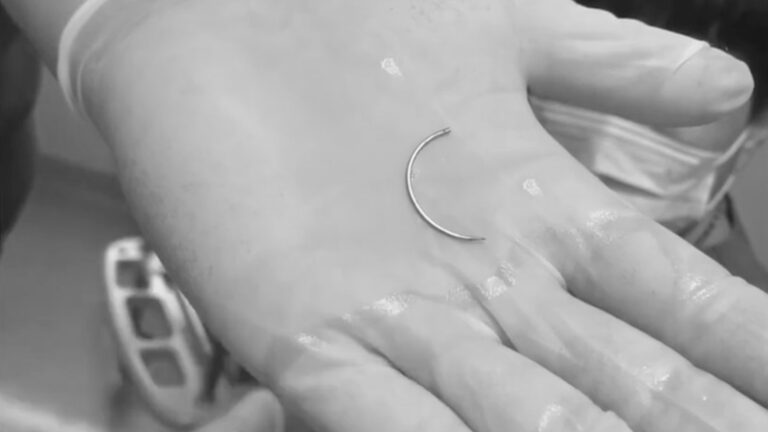New research into ancient tools has revealed that cutting stones once believed to be made by early humans could actually have been the work of monkeys.
Scientists from the Max Planck Institute for Evolutionary Anthropology made the bizarre discovery while they were studying macaque monkeys in Thailand.
They were astonished when a monkey colony they were studying created stone flakes while cracking hard-shelled nuts.
The flakes – they realised – looked exactly like prehistoric tools that had been attributed to early humans.
Now they believe that some of the earliest known cutting tools are likely to have been made by monkeys and not human ancestors.
Researchers from the institute – based in Leipzig, Germany – say the Thai monkey flakes are almost indistinguishable from tools found in some of the oldest archaeological sites in East Africa.
Study lead author Tomos Proffitt said in a statement obtained by Newsflash: “The ability to intentionally make sharp stone flakes is seen as a crucial point in the evolution of hominins, and understanding how and when this occurred is a huge question that is typically investigated through the study of past artefacts and fossils.
“Our study shows that stone tool production is not unique to humans and our ancestors.

“The fact that these macaques use stone tools to process nuts is not surprising, as they also use tools to gain access to various shellfish as well.”
Long-tailed macaques (Macaca fascicularis) that range between 38.5 and 64.8 centimetres (15 and 25.5 inches) in size are native to the Philippines, Malaysia, Indonesia, Burma, India, Vietnam, Cambodia, Laos and Thailand.
They depend on limestone tools such as hammerstones and anvils to crack oil palm nuts, which the study states are almost identical to man’s Stone Age tools.
Proffitt added: “What is interesting is that, in doing so they accidentally produce a substantial archaeological record of their own that is partly indistinguishable from some hominin artefacts.”
Co-lead author Jonathan Reeves explained: “The fact that these artefacts can be produced through nut cracking has implications for the range of behaviours we associate with sharp-edged flakes in the archaeological record.”
The discovery – researchers claimed – offers new insights into how our ancestors began producing tools and that it might have been linked to a similar behaviour which could be substantially older than current records show.
You May Also Like

Head of the Technological Primates Research Group at the Max Planck Institute for Evolutionary Anthropology and senior author of the study Lydia Luncz said: “Cracking nuts using stone hammers and anvils, similar to what some primates do today, has been suggested by some as a possible precursor to intentional stone tool production.
“This study, along with previous ones published by our group, opens the door to being able to identify such an archaeological signature in the future.
“This discovery shows how living primates can help researchers investigate the origin and evolution of tool use in our own lineage.”
The study was published in the peer-reviewed multidisciplinary open-access scientific journal Science Advances on Friday, 10th March 2023.
To find out more about the author, editor or agency that supplied this story – please click below.
Story By: Georgina Jadikovska, Sub-Editor: Joseph Golder, Agency: Newsflash
The Ananova page is created by and dedicated to professional, independent freelance journalists. It is a place for us to showcase our work. When our news is sold to our media partners, we will include the link here.




